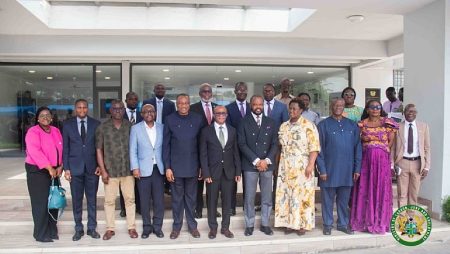The United Arab Emirates (UAE) has introduced stringent new visa requirements for Nigerian travelers, effectively raising the bar for entry into the country, particularly for tourism and business purposes. These changes, communicated through travel agents and attributed to directives from Dubai immigration authorities, establish stricter age-based criteria and financial prerequisites for visa eligibility. Specifically, Nigerian citizens aged 18 to 45 are no longer permitted to apply for tourist visas unless they are accompanied by a qualifying individual. This restriction effectively bars solo travelers within this age group from obtaining tourist visas to the UAE. Furthermore, individuals aged 45 and above are now required to provide a personal six-month bank statement demonstrating a minimum monthly closing balance of $10,000 (or its equivalent in Nigerian Naira). These new regulations are anticipated to significantly impact the flow of Nigerian travelers to Dubai, a traditionally popular destination for business and leisure activities.
The UAE’s rationale behind these stricter visa policies has not been explicitly articulated, but speculation within the travel industry suggests several contributing factors. One prominent theory is that the changes aim to address concerns related to immigration overstays and potential security risks. By imposing more demanding financial and age-related criteria, the UAE may be seeking to filter applicants, thereby reducing the perceived risk of individuals overstaying their visas or engaging in activities that could potentially compromise security. Another factor could be related to economic considerations and efforts to manage the demographics of incoming visitors. By requiring substantial financial proof, the UAE may be aiming to attract tourists and business travelers with demonstrable economic stability, potentially boosting local spending and contributing to the economy.
The implications of these new visa regulations are far-reaching and are expected to significantly impact both Nigerian travelers and the UAE’s tourism and business sectors. For Nigerian citizens, particularly those in the 18-45 age bracket, the restrictions pose a considerable barrier to travel for leisure or business purposes. The financial requirement for older applicants presents a significant hurdle, effectively excluding a large segment of potential Nigerian travelers who may not maintain the required minimum balance in their bank accounts. This could lead to a decline in Nigerian tourism to the UAE and potentially impact business exchanges between the two countries. Furthermore, the new rules may disproportionately affect younger entrepreneurs and professionals seeking to establish business connections or explore opportunities in Dubai.
From the perspective of the UAE, these measures may have both intended and unintended consequences. While potentially mitigating concerns about immigration overstays and security, the stricter visa requirements could lead to a decrease in tourism revenue from Nigeria, a significant market for the UAE’s hospitality and retail sectors. The limitations on younger travelers may also hinder potential business partnerships and entrepreneurial ventures, limiting opportunities for economic growth and innovation. The long-term impact on bilateral relations between Nigeria and the UAE remains to be seen, but the new visa policies could potentially strain diplomatic ties and create challenges for individuals and businesses reliant on travel between the two countries.
The new visa rules also highlight broader issues related to international travel and immigration policies. Increasingly, countries are implementing more stringent visa requirements, often citing security concerns or economic considerations as justification. These restrictions can have significant implications for global mobility, impacting not only tourism and business but also educational exchanges, cultural interactions, and family visits. Finding a balance between legitimate security and economic concerns and the need to facilitate international exchange remains a complex challenge for governments worldwide. The UAE’s new visa policy for Nigerians serves as a case study in this ongoing global debate on immigration controls and their ripple effects on various sectors.
As the new visa regime takes effect, the travel industry and prospective travelers will be closely monitoring the practical implementation and impact of these changes. The efficacy of the measures in achieving their intended objectives, as well as their unintended consequences on bilateral relations and economic activity, will require ongoing assessment. The UAE’s experience may also inform the approaches of other countries grappling with similar challenges related to immigration management and international travel regulations. The unfolding situation underscores the evolving nature of global mobility and the increasing complexities surrounding international travel in the 21st century.














